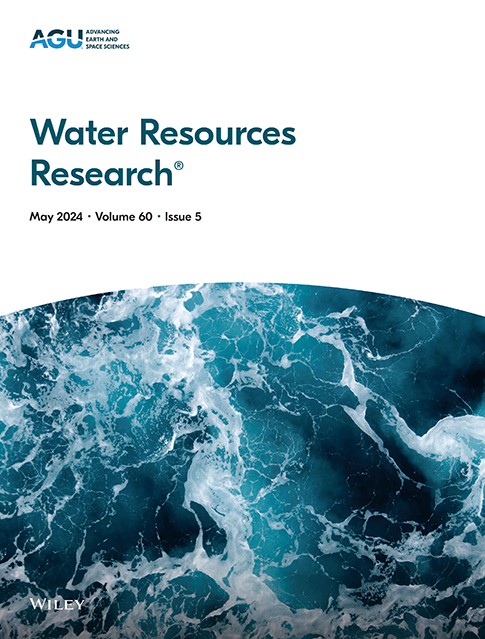A Novel Heat Pulse Method in Determining “Effective” Thermal Properties in Frozen Soil
IF 5
1区 地球科学
Q2 ENVIRONMENTAL SCIENCES
引用次数: 0
Abstract
Accurate and fast measurements of thermal properties are frequently required for characterizing the heat-water dynamics in frozen soil. Measuring the thermal properties of frozen soil without inducing ice thaw has proven challenging with conventional heat pulse (HP) methods. In this study, based on an Infinite Line Source (ILS) semi-analytical model that applies a constant temperature lower than the freezing point at the heat source to prevent the initiation of ice thaw in the frozen soil, we propose a novel HP-based approach to measure thermal properties, applicable at temperatures below or above 0°C. Laboratory experiments and numerical modeling were utilized to validate the applicability of the approach and optimization strategies of the measurement. We found that the proposed HP-based approach effectively maintained the maximum spatial temperature below the freezing point and therefore estimated the bulk thermal properties of quartz sand and ice contents. An optimized measurement strategy was proposed to monitor the temperature variations 2–4 cm away from the center of the heat probe after 60 s. This progress can largely facilitate the determination of the thermal properties of multi-phase and -component frozen soil such as thermal conductivity, heat flux, and ice content in cold areas across soil science, hydrology, engineering, and climate science.测定冻土“有效”热特性的新型热脉冲法
为了描述冻土的热-水动力学特性,经常需要精确和快速的热特性测量。传统的热脉冲(HP)方法在不引起冰融化的情况下测量冻土的热特性是具有挑战性的。在本研究中,基于无限线源(ILS)半解析模型,我们提出了一种新的基于hp的方法来测量热性质,适用于低于或高于0°C的温度。该模型应用于热源处低于冰点的恒定温度来防止冻土中冰融化的开始。通过室内实验和数值模拟验证了测量方法的适用性和优化策略。我们发现,基于hp的方法有效地将最大空间温度保持在冰点以下,从而估计石英砂的整体热性质和冰含量。提出了一种优化的测量策略,用于监测60 s后距离热探头中心2 ~ 4 cm处的温度变化。这一进展在很大程度上促进了寒区多相多组分冻土热特性的测定,如热导率、热通量和冰含量,涵盖土壤科学、水文科学、工程科学和气候科学。
本文章由计算机程序翻译,如有差异,请以英文原文为准。
求助全文
约1分钟内获得全文
求助全文
来源期刊

Water Resources Research
环境科学-湖沼学
CiteScore
8.80
自引率
13.00%
发文量
599
审稿时长
3.5 months
期刊介绍:
Water Resources Research (WRR) is an interdisciplinary journal that focuses on hydrology and water resources. It publishes original research in the natural and social sciences of water. It emphasizes the role of water in the Earth system, including physical, chemical, biological, and ecological processes in water resources research and management, including social, policy, and public health implications. It encompasses observational, experimental, theoretical, analytical, numerical, and data-driven approaches that advance the science of water and its management. Submissions are evaluated for their novelty, accuracy, significance, and broader implications of the findings.
 求助内容:
求助内容: 应助结果提醒方式:
应助结果提醒方式:


